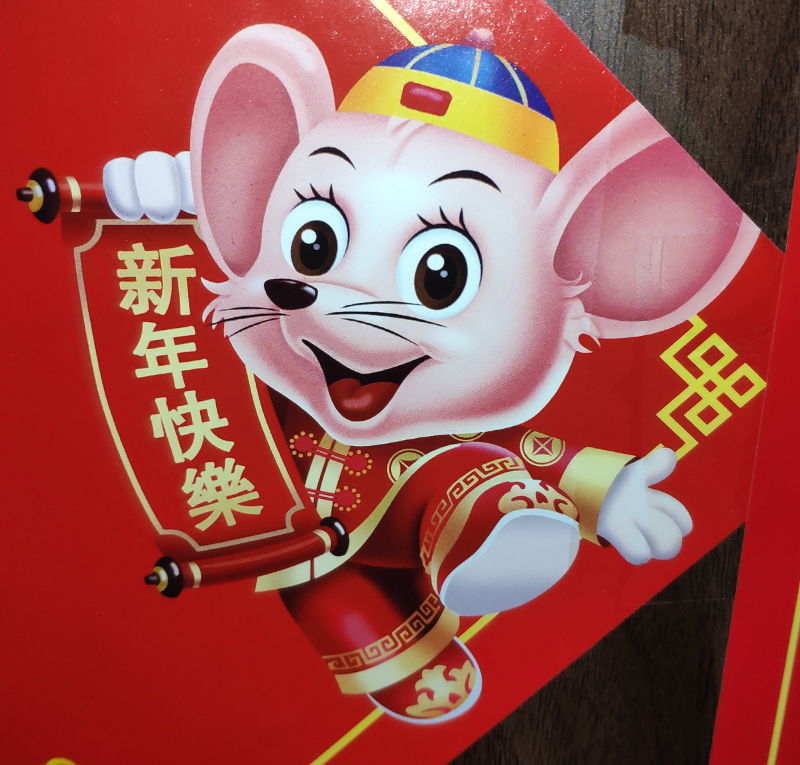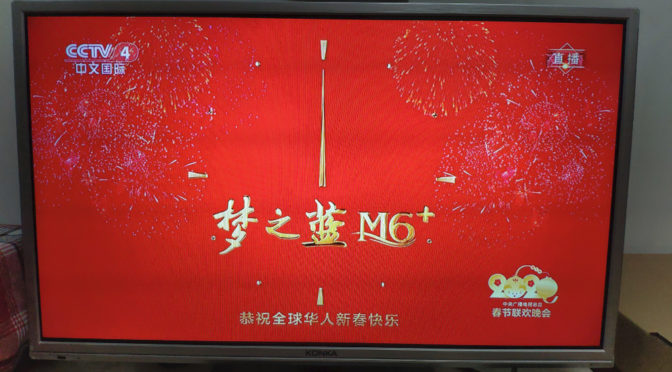With the end of the CCTV Chunwan gala (and the striking of midnight), it is now officially the Year of the Rat and the start of a new lunar year. Though this year has been dampened a bit by the outbreak of the coronavirus in Wuhan, it still is an important time to get together and look forward to the year ahead.

Today, the 25th of January, is the actual Chun Jie, 春节, on which there are several things you are supposed to and not supposed to do.
One thing you’re supposed to do already is to eat jiaozi, if you haven’t already eaten them last night at the end of the TV gala.
Another thing you’re supposed to do is to set off fireworks, although major cities have banned the practice so, in order to scare away that Nian monster, you need to go out into the suburbs to set them off (and somehow find a way back again).
Next, if you haven’t already, you’re supposed to have red packets available to give to those younger than you. If you didn’t prepare the 红包 (hong bao), that’s no problem, you can use WeChat or Alipay to send money digitally. Same same but different!


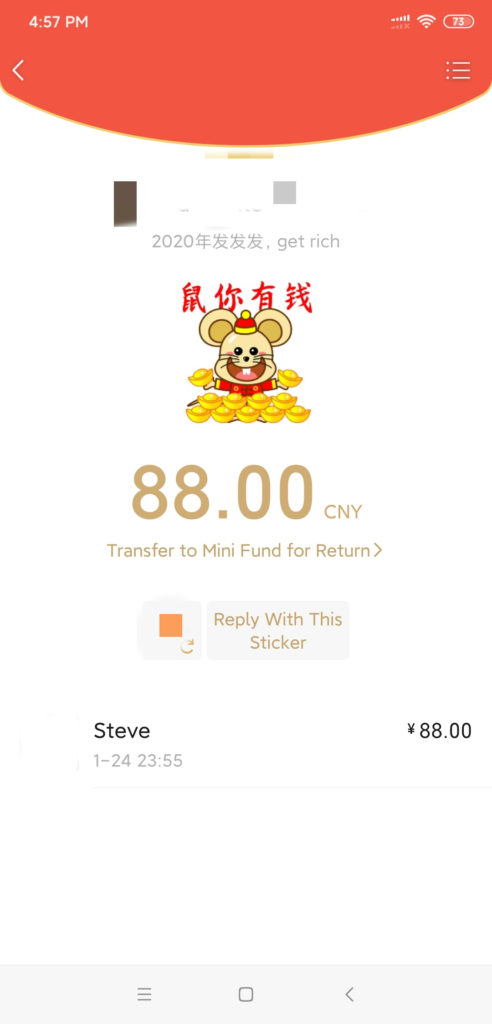
You can also play the red packet games that many APPs have. Since ordering anything is pretty much impossible since all of the delivery folks have returned to their hometowns, you’ll have to settle to ordering and waiting until February 2nd and simply play whatever red packet game is available.
You’re also supposed to bring out your red stuff. Like, everything. Red underwear, bras (for the women), sweaters, pants, hats, etc. Jackets can stay whatever colour they are, but it’s a good idea to have some red mitts, just in case.
It’s also a time to honour your ancestors. Although the practice is slowly being phased out of the large cities, people will still gather on street corners at night to burn an offering for their ancestors. This is part of the smell of smoke that one will encounter during the Spring Festival (in addition to that of fire works).
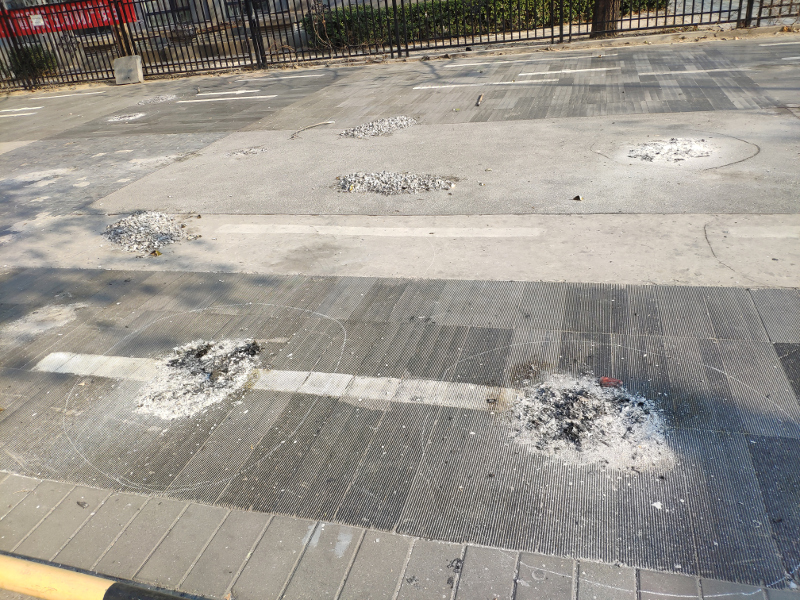
If you haven’t done so already, you can also hang couplets or other red ribbons around your door and put a few 福 (fú) stickers around your house, but most importantly on your door and windows.
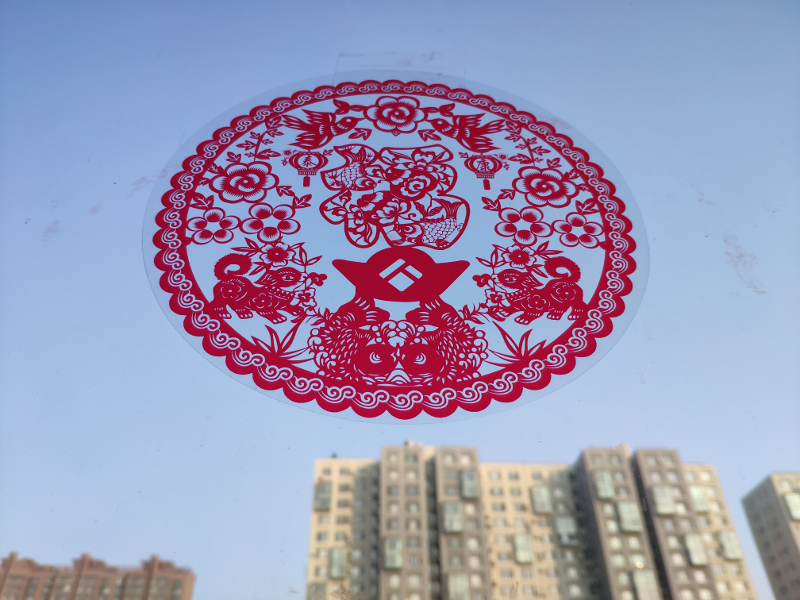
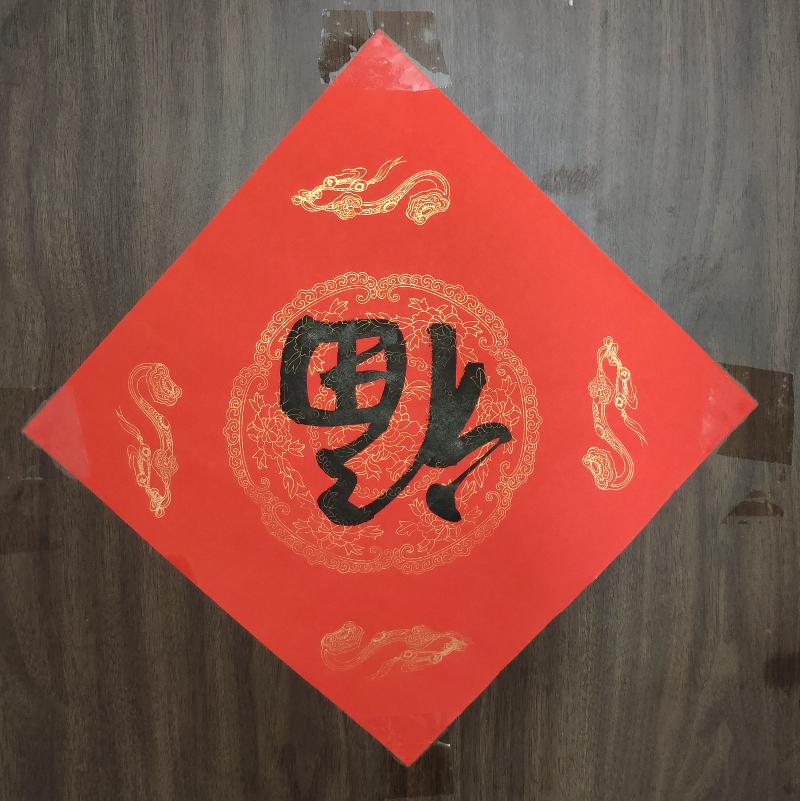
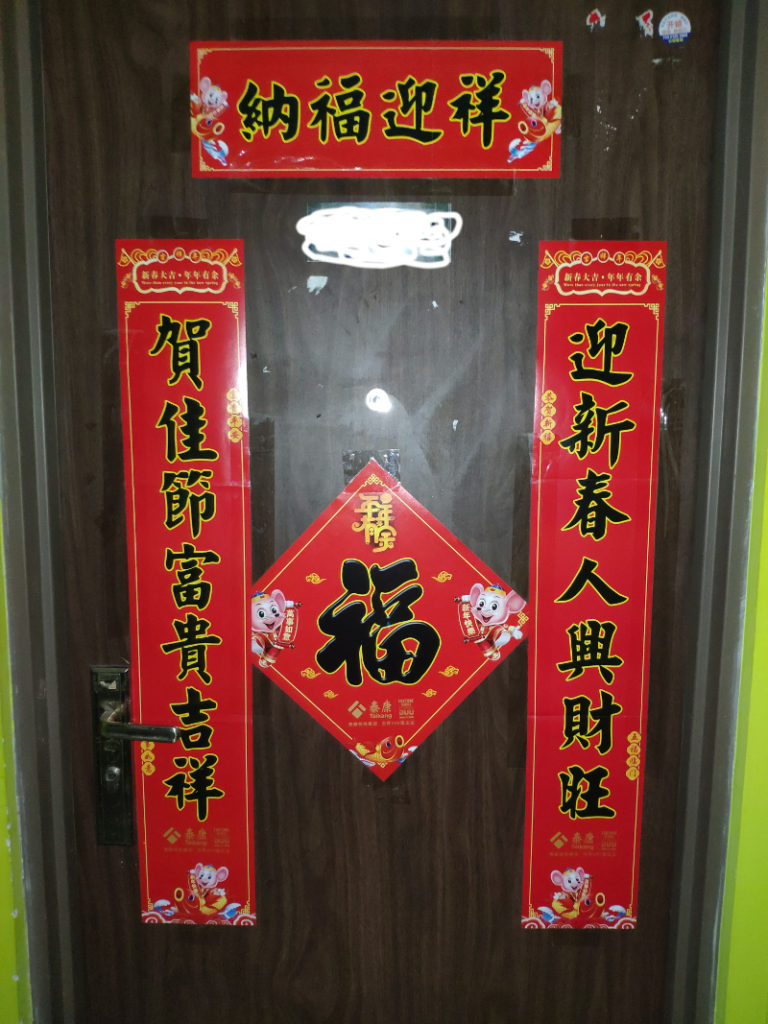
Finally, don’t be stingy wishing people Happy New Year, 新年快乐!(Xīn nián kuài lè!) or 春节快乐!(Chūn jié kuài lè!) or even 数年快乐! (Shǔ nián kuài lè!), though the last one is kind of a cutesy thing to do and not very common. The other two, however, are perfectly fine to say at any time.
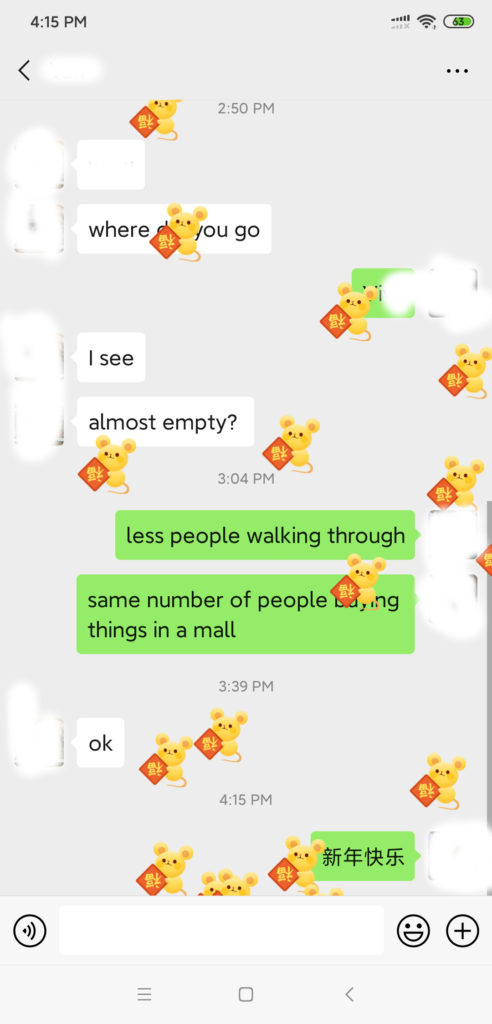
The well wishes for the new year can also be followed with 万事如意! (wàn shì rú yì) which basically means “I hope everything goes well (for you)! One other saying you can use which you’ll usually hear in song form is 恭喜你发财! (Gōng xǐ ni fā cái!) which means “May you have good fortune in the coming year!
Sadly, the one other thing that is typical to do during the Spring Festival is the temple fairs, which have been cancelled this year in an effort to disperse crowds and limit the transmission of the coronavirus. So, no hawthorn sticks or other snacks from around China this year.
In contrast, there are some things you should not do today or for the next few days.
First, no cleaning. You were supposed to do that before the celebrations started on Friday night. If you haven’t done so by now, then you’ll have to wait until Day 5, or Day 8 just to be safe.
You also can’t wash any clothes as that will also remove the luck from them (though when it got in there I don’t know).
You can’t change clothes either (you should still be wearing red) or your bedding, so make sure you don’t spill anything.
Don’t throw away any garbage (because who knows what you’ve gathered up over the celebrations that might still be useful).
And don’t use any needles, and especially don’t ever cut your hair at this time or else your uncle will die. Or so the story goes.
Finally, don’t wash your hair for the next few days either, as that will remove the luck that was bestowed upon your head during the celebrations.
Oh, and you can’t eat porridge on the morning of Chun Jie or else you will be poor for the rest of the year. Say wha? It’s because, as it was explained to me, the type of porridge that was usually eaten didn’t have much rice but consisted of mostly water. So, the idea is that if you drink this porridge on the first day of the New Year, then you’ll drink it for the rest of the year. Basically, don’t eat what poor people eat. (Which begs the question, should I eat what rich people eat? And how do I afford that?!)
Now, those restrictions might be all well and good for a family of celebrants but, as a guy living by himself, there might be allowed a few liberties, such as washing gym clothes after use.
And so, that is what happens on the first day of Chinese New Year. Some holdovers from traditions and some new additions by way of technology. If you celebrated, I hope you had a great new year’s eve and have a prosperous Year of the Rat!
